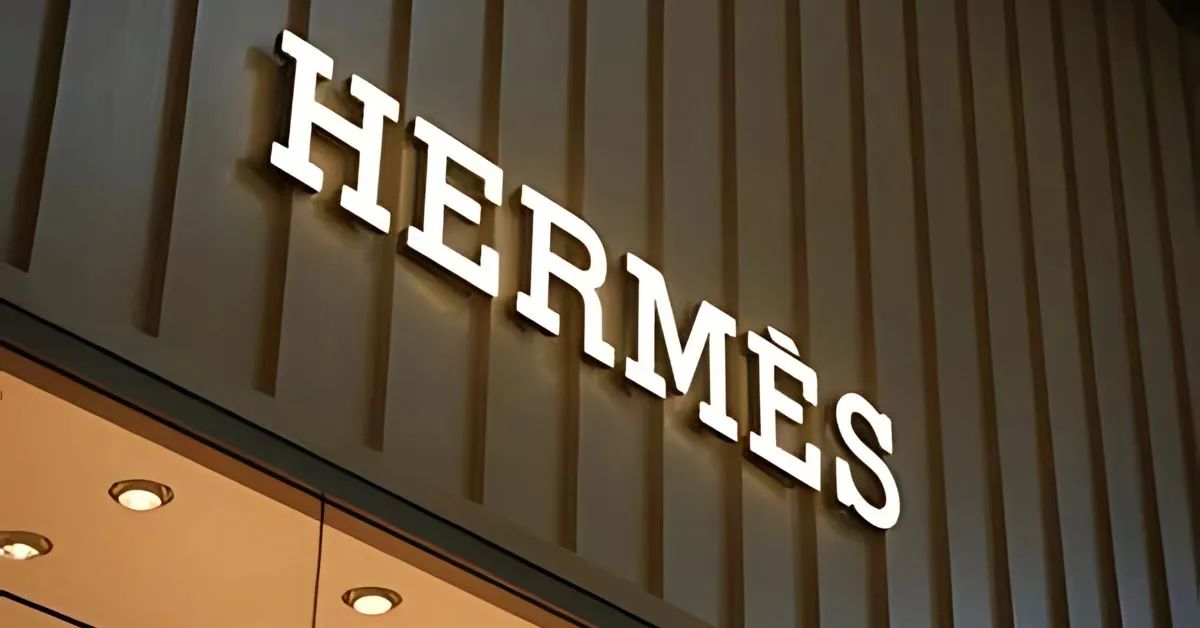Hermès International, the renowned French luxury goods company, has reported that a former heir to the family-controlled business is believed to have divested a significant shareholding valued at approximately €14 billion. This development, announced on July 29, 2025, marks a notable shift in the ownership structure of the iconic brand, known for its high end leather goods, scarves, and fragrances. While details remain limited, the disclosure has sparked interest among investors and industry observers, given Hermès’ prominent position in the global luxury market.
Background on Hermès’ Ownership Structure
Hermès, founded in 1837, has long been a family-controlled enterprise, with descendants of founder Thierry Hermès maintaining significant influence over the company. The family’s ownership is primarily held through a complex structure involving holding companies, which has helped protect Hermès from hostile takeovers, such as the one attempted by rival luxury conglomerate LVMH in 2010. The family’s commitment to maintaining control has been a hallmark of Hermès’ corporate governance, ensuring its independence and brand integrity.
The reported divestiture of a €14 billion stake, equivalent to roughly $15.2 billion based on current exchange rates, represents a substantial portion of the company’s equity. Hermès’ market capitalization, as of July 2025, stands at approximately €100 billion, making this stake a significant share of the company’s total value. The identity of the former heir and the exact timing of the divestiture have not been publicly disclosed, adding an element of intrigue to the announcement.
Details of the Divestiture
According to a statement from Hermès, the company believes that the former heir no longer holds the shares in question, though it did not specify whether the stake was sold on the open market, transferred to another entity, or otherwise disposed of. The lack of clarity has fueled speculation about the motivations behind the move, which could range from personal financial decisions to strategic restructuring within the family’s holdings.
Hermès has emphasized that this development does not impact its operational strategy or commitment to its artisanal heritage. The company’s leadership, including Executive Chairman Axel Dumas, has a history of prioritizing long-term stability over short-term financial maneuvers, which may reassure investors concerned about potential disruptions.
Implications for Hermès’ Governance
The divestiture raises questions about the future of Hermès’ family-driven governance model. The company’s ownership structure has been carefully designed to maintain family control, with mechanisms such as H51, a holding company representing the interests of Hermès family members, playing a central role. If the €14 billion stake has indeed been sold to external investors, it could dilute the family’s influence, though Hermès has not indicated any immediate changes to its control structure.
Key considerations for Hermès’ governance include:
- Family Control: The family’s ability to retain majority voting rights through holding companies remains intact, but a significant external stake could introduce new dynamics.
- Market Perception: Investors may view the divestiture as a signal of potential shifts in strategy or succession planning, prompting closer scrutiny of Hermès’ leadership.
- Luxury Sector Competition: Rivals like LVMH and Kering may monitor the situation for opportunities, given Hermès’ strong market position.
The company’s ability to navigate these dynamics will be critical to maintaining its reputation as a stable and independent luxury brand.
Hermès’ Market Performance
Hermès has enjoyed robust financial performance in recent years, driven by strong demand for its Birkin and Kelly bags, silk scarves, and ready to wear collections. In its most recent earnings report, the company reported a 13% increase in sales for the first half of 2025, reaching €7.5 billion, with growth across all regions, particularly in Asia and the Americas. The luxury sector’s resilience, despite macroeconomic challenges such as inflation and geopolitical tensions, has bolstered Hermès’ position as a market leader
The reported divestiture has not yet significantly impacted Hermès’ stock price, which remained stable in trading on July 29, 2025. However, analysts are closely monitoring the situation for potential effects on investor confidence, particularly if further details emerge about the buyer or the terms of the transaction.
The Luxury Sector’s Broader Context
The luxury goods industry has faced a complex landscape in 2025, with brands navigating challenges such as supply chain disruptions, shifting consumer preferences, and economic uncertainties. Hermès has distinguished itself through its focus on exclusivity, craftsmanship, and limited production, which has sustained demand for its products even in a competitive market.
Rivals like LVMH, Kering, and Richemont continue to invest heavily in brand expansion and digital innovation, putting pressure on Hermès to maintain its edge. The potential shift in Hermès’ ownership structure could influence its strategic decisions, particularly in areas such as mergers and acquisitions, partnerships, or investments in sustainability and technology.
Speculation on the Former Heir
While Hermès has not named the former heir, the company’s family-centric structure points to a descendant of the founding family or a related entity. The Hermès family includes multiple branches, with key figures like Axel Dumas and Pierre-Alexis Dumas playing active roles in management. The divestiture could reflect a personal decision by an individual family member or a strategic move to consolidate holdings within the family’s broader portfolio.
Analysts have speculated that the shares may have been transferred to a trust, sold to institutional investors, or acquired by another family entity to maintain control. Without official confirmation, these scenarios remain hypothetical, but they underscore the complexity of managing a family-owned business with significant global influence.
Investor and Analyst Reactions
Market analysts have responded cautiously to the news, noting that Hermès’ strong fundamentals and brand equity are likely to mitigate any short-term concerns. According to Reuters, some investors view the divestiture as a neutral event, provided the family retains majority control. Others, however, are seeking clarity on the buyer and the potential impact on corporate governance.
The luxury sector’s stability has been a draw for investors, and Hermès’ consistent performance makes it a reliable choice in portfolios. However, any perceived shift in ownership could prompt a reassessment of the company’s risk profile, particularly if external investors gain significant influence.
Future Outlook for Hermès
Hermès is expected to continue its focus on organic growth, with plans to expand its retail presence and invest in sustainable practices. The company’s commitment to artisanal production and limited supply has allowed it to maintain pricing power, even in a challenging economic environment. The divestiture, while notable, is unlikely to alter Hermès’ core strategy in the near term.
As the company moves forward, stakeholders will be watching for updates on the ownership structure and any potential changes to its governance model. Hermès’ ability to balance family control with the demands of a global luxury market will be critical to its continued success.
Hermès International announced on July 29, 2025, that a former heir is believed to have divested a €14 billion stake in the company, representing a significant portion of its equity. While details about the transaction and the heir’s identity remain undisclosed, the development has prompted interest in Hermès’ ownership structure and governance. The luxury brand, known for its iconic products and strong financial performance, continues to prioritize its artisanal heritage and market leadership. The divestiture has not significantly impacted its stock price, but investors are seeking further clarity on its implications for the company’s future.
Sources & References:
- Reuters
- Bloomberg
- The Financial Times
- WWD
.
Author
-

Marcus Hale is a finance professional turned content creator who specializes in personal finance, stock market analysis, crypto trends, and smart investing strategies. Known for simplifying complex financial concepts, Marcus helps readers make confident money decisions. Whether you’re budgeting, investing, or tracking global markets, Marcus delivers timely advice with clarity and authority.







